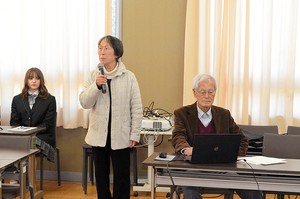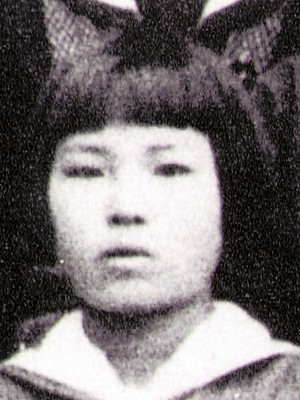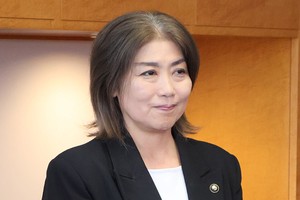By MIKAKO OTSUBO/ Staff Writer
October 19, 2023 at 07:00 JST
Editor’s note: In the Taste of Life series, cooking experts, chefs and others involved in the field of food introduce their special recipes intertwined with their paths in life.
* * *
Despite her petite build, 140 centimeters, Fumi Sai used to be adept at cooking with a wok. But after 45 years or so of toiling in the kitchen as the owner-chef of her own restaurant, she decided to retire at 70 when the weight of the wok began to bother her. By turning over the restaurant to her nephew Kazuyoshi Takizawa, who is now 46, she finally found she had time to herself.
Sai held workshops on food and tried her hand at catering. She even joined a cooking class to learn French cuisine.
Sai also studied medicinal cooking and learned when ingredients were in season, how to choose them, their effect on the body and how to combine them. “Our bodies are made up of what we eat. I want to be more responsible through properly cooked food that gives the body what it needs.”
This notion prompted her in 2021 to open Sai, a restaurant that serves one group of guests a day at her home in Kawasaki city. She was 74 at the time. She has been serving courses of her choice in her sunny living room surrounded with lush green.
Under the concept of “improving health through food,” she continues to create nourishing dishes featuring unexpected combinations such as scallops pickled in Laojiu, an aged Chinese alcoholic beverage, and potato salad with grapefruit.
One day, a guest who had finished the course told her with tears in the eyes, “Everything was to my liking.”
Sai said, “I am so pleased when my cooking makes people happy. I shall even think of how to bring tears to people’s eyes the next time,” she jokes.
Even though her restaurant is booked solid for the next few months, she admits to lacking confidence in her cooking.
“People tell me my dishes taste good even though there are so many delicious foods out there.”
Her bashful smile radiated the friendly charm of the chef, who is endearingly called “Fumin mama.” Her goal is to remain active without exerting herself too much, either mentally or physically.
This week’s recipe is “chicken heart pickled in soy sauce,” which flashed into her mind while cooking at Sai. She says it is a treasured recipe born just a year or so ago.

The white fat on the hearts should not be removed since it offers umami. The dish will look pretty if you have coriander to hand as garnish. Another key is not to overcook to retain the texture. The hearts will be cooked thoroughly if they are pickled in hot marinade while still piping hot.
* * *
Fumi Sai: Born in Tokyo in 1946, Sai is the owner-chef of a Chinese-style home cooking restaurant. She opened Chukafu kateiryori Fumin (Chinese-style home cooking Fumin) in Tokyo when she was 25. A documentary film following her path will be released next year.
BASIC COOKING METHOD
Main ingredients (Serves 2)
300 grams chicken hearts (tori-hatsu), Ingredients A (300 ml water, 25 grams granulated sugar [zarame], 25 ml sake, 50 ml soy sauce), Ingredients B (1 clove garlic, 2 to 3 slices ginger, green part of green onion [naganegi type], 1 pod chili pepper, 1 star anise)
1. To make marinade, mix Ingredients A in pot, add Ingredients B and place on heat. When pot comes to a boil, lower heat and simmer for 3 to 5 minutes.
2. In another pot, heat 1.5 liters of water to boil hearts.
3. Rinse hearts, cut open in half lengthwise. Remove excess blood, rinse clean and drain on sieve.

4. Place (3) in boiling water in (2) and cook for 1 minute.

5. Drain hearts on sieve and pickle in (1). Pickle for desired time.
About 360 kcal and 2.8 grams salt per portion
(Nutrient calculation by the Nutrition Clinic of Kagawa Nutrition University)
* * *
From The Asahi Shimbun’s Jinsei Reshipi (Life Recipe) column




















A peek through the music industry’s curtain at the producers who harnessed social media to help their idols go global.
A series based on diplomatic documents declassified by Japan’s Foreign Ministry
Here is a collection of first-hand accounts by “hibakusha” atomic bomb survivors.
Cooking experts, chefs and others involved in the field of food introduce their special recipes intertwined with their paths in life.
A series about Japanese-Americans and their memories of World War II